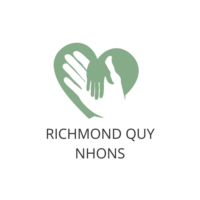How to take care of a newborn puppy without mother. Caring for a newborn puppy without its mother can feel overwhelming, but it’s a rewarding experience that requires dedication and knowledge. These tiny creatures rely on us for their survival and well-being, so understanding their needs is crucial. From feeding to socialization, every aspect of their care plays a vital role in their development.
I’ve learned that establishing a routine is key to ensuring a healthy and happy puppy. With the right approach, you can provide the warmth and nurturing they need to thrive. In this guide, I’ll share essential tips and practical steps to help you navigate this journey and give your puppy the best start in life.
Key Takeaways
- Understand Basic Needs: Newborn puppies require warmth, nutrition, and care for healthy growth and development. Temperature regulation is crucial since they can’t maintain body heat on their own.
- Proper Feeding Techniques: Use puppy-specific formula and feeding bottles to provide nourishment every two to four hours. Monitor weight gain to ensure proper nutrition levels.
- Essential Supplies: Prepare with necessary items like feeding bottles, puppy formula, soft bedding, and heat sources to create a comfortable environment for the puppy.
- Regular Health Checks: Perform daily health assessments, including monitoring weight and hydration, and observe for signs of illness to ensure the puppy’s well-being.
- Socialization Matters: Early socialization with different stimuli and handling fosters healthy development and prevents behavioral issues as the puppy grows.
- Training Fundamentals: Start basic command training early using positive reinforcement to instill good behavior and improve adaptability in social situations.
How to Take Care of a Newborn Puppy Without Mother
Newborn puppies exhibit unique characteristics and behaviors that require careful attention. Grasping these traits is essential for providing proper care.
Physical Characteristics
Newborn puppies typically weigh between 3 and 5 ounces at birth, with a fully formed body but lacking sight and hearing. Their fur is soft, and they depend on their sense of touch for navigation. The puppies’ primary needs include warmth and nutrition. Temperature regulation is crucial, as they cannot maintain body heat without help. Using a heating pad set on low or a warm blanket can keep them comfortable. Their eyes usually open between 10 to 14 days, and they begin to hear around the same time. Monitoring weight gain is vital; healthy puppies gain about 5 to 10 percent of their body weight daily.
Behavioral Traits
Newborn puppies exhibit specific behaviors that help them survive. They instinctively seek warmth and nourishment, often crawling toward their mother. Without their mother, I must mimic this behavior by providing heat sources and feeding schedules. Puppies display rooting and sucking instincts, which are crucial for their feeding. When feeding, I should look for signs of contentment, like relaxed muscles and soft whimpering. Socialization skills begin developing around three weeks, as they start responding to sounds and experimenting with movement. Enrichment activities should be gradually introduced to stimulate their development.
Essential Supplies for Care
Caring for a newborn puppy without its mother requires specific supplies to meet its needs effectively. Having the right equipment simplifies the process and enhances the puppy’s well-being.
Feeding Bottles and Formula
Feeding bottles designed for puppies help replicate the mother’s nurturing. Choose a bottle with a soft, adjustable nipple to control the flow of milk. Formula specifically made for puppies is crucial, as it provides the necessary nutrients for growth. Follow the instructions for mixing the formula, ensuring it’s warm, not hot. Feed the puppy every two to four hours, keeping a close eye on its weight to guarantee proper intake and healthy growth.
Bedding and Warmth
Proper bedding creates a safe, comfortable environment for a newborn puppy. Use soft, absorbent materials like fleece or cotton, and change the bedding frequently to maintain cleanliness. Providing warmth is vital; I recommend a heating pad set on low or a hot water bottle wrapped in a towel to simulate the mother’s body heat. Monitor the temperature in the puppy’s area, ensuring it stays between 85°F to 90°F during the first week of life, gradually decreasing to around 75°F by week four.
Feeding Guidelines
Feeding a newborn puppy without its mother requires careful planning and attentiveness. Proper nutrition is vital for growth and development.
Frequency and Amount
Feed the puppy every two to four hours, ensuring consistency in timing. As a general guideline, a puppy will consume roughly 1/4 to 1/2 teaspoon of puppy formula for every ounce of body weight per feeding. For example, if the puppy weighs one pound (16 ounces), it will need approximately 4 to 8 teaspoons per feeding. Adjust amounts as the puppy grows, monitoring its weight to assess nutritional needs. Weigh the puppy daily to track growth, aiming for a weight gain of 5 to 10% each day during the first week.
Signs of Hunger
Identify signs of hunger to ensure the puppy receives adequate nourishment. Look for behaviors like whimpering, rooting movements, or actively seeking the bottle. Puppies may also become more vocal or fidgety when hungry. If these symptoms appear, promptly offer food to maintain their health and comfort. Always monitor the puppy during feeding to avoid choking or aspiration, ensuring a safe and effective feeding process.
Health and Hygiene
Maintaining the health and hygiene of a newborn puppy without its mother is crucial for its development and overall well-being. Regular health checks and proper grooming practices contribute significantly to a puppy’s vitality.
Basic Health Checks
Performing basic health checks helps monitor the puppy’s condition. I check the puppy’s weight daily to ensure it gains at least 10% of its body weight each week. Observing the puppy’s behavior and activity levels provides insights into its health; lethargy or unresponsiveness signals possible issues. I also assess the puppy’s hydration by checking for skin elasticity. When gently pinching the skin, it should quickly return to its original position if well-hydrated. Additionally, monitoring the eyes, ears, and mouth for signs of infection, such as discharge or swelling, is essential. Keeping a record of each check helps track the puppy’s progress and identify any health concerns promptly.
Bathing and Grooming
Bathing and grooming play vital roles in maintaining a puppy’s hygiene. I recommend bathing the puppy only when necessary, typically every few weeks, to prevent irritation to its sensitive skin. When bathing, I use warm water and puppy-specific shampoo formulated to be gentle. Rinsing thoroughly removes all soap residue. I dry the puppy with a soft towel or low-heat hairdryer while avoiding drafts to keep it warm.
Regular grooming helps manage the puppy’s coat and skin. I brush the puppy’s fur as needed based on its breed, observing for tangled or matted areas. Trimming nails every two to three weeks prevents overgrowth and discomfort. Cleaning the puppy’s ears involves using a vet-recommended solution on a cotton ball without inserting anything into the ear canal. Consistent grooming promotes healthy skin and fur, along with a stronger bond between me and the puppy.
Socialization and Development
Socialization is vital for a newborn puppy’s growth and emotional well-being. Encouraging positive interactions and experiences shapes their behavior and builds confidence in their environment.
Importance of Interaction
Interaction fosters essential social skills. Regular handling exposes puppies to human touch and sound. Engaging with different people, pets, and environments helps them adapt to various stimuli. Early interactions prevent behavioral problems later in life. Start by gently handling the puppy several times a day, incorporating short and enriching play sessions. Gradually introduce them to new experiences like car rides, household noises, and varied surfaces to build their resilience.
Training Tips
Training lays the foundation for good behavior. Begin basic commands as early as possible. Use positive reinforcement techniques like treats and praise to encourage desired behaviors. Keep training sessions short, about 5 to 10 minutes, to maintain the puppy’s focus. Consistency is key—use the same commands and reward behaviors immediately to reinforce learning. Introduce basic commands such as “”sit,”” “”stay,”” and “”come”” during these sessions. Gradually socialize them with other dogs and people to enhance their adaptability in different social settings.
So, how to take care of a newborn puppy without mother? Caring for a newborn puppy without its mother can be a rewarding experience that requires dedication and attention. By understanding their unique needs and establishing a consistent routine, I can ensure their health and happiness.
From providing warmth and proper nutrition to fostering socialization skills, each step I take plays a crucial role in their development. With patience and love, I can help them thrive and grow into well-adjusted dogs.
Embracing this journey not only strengthens our bond but also sets the foundation for a happy and healthy life together.



